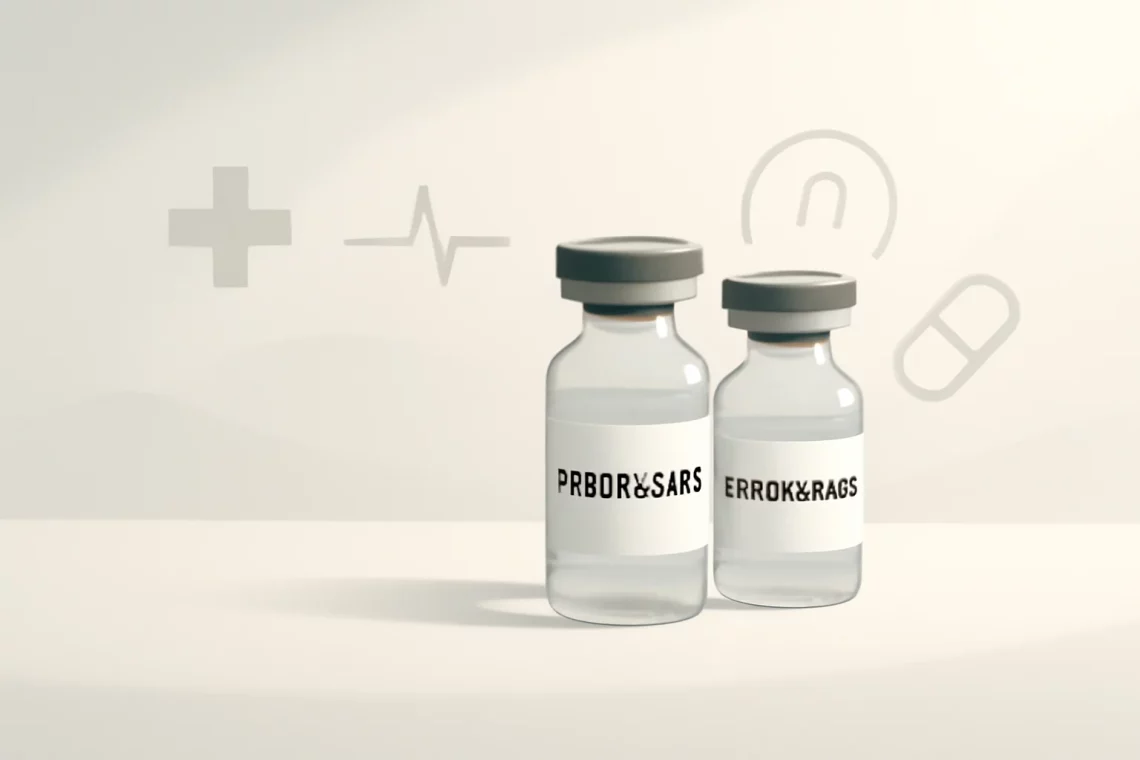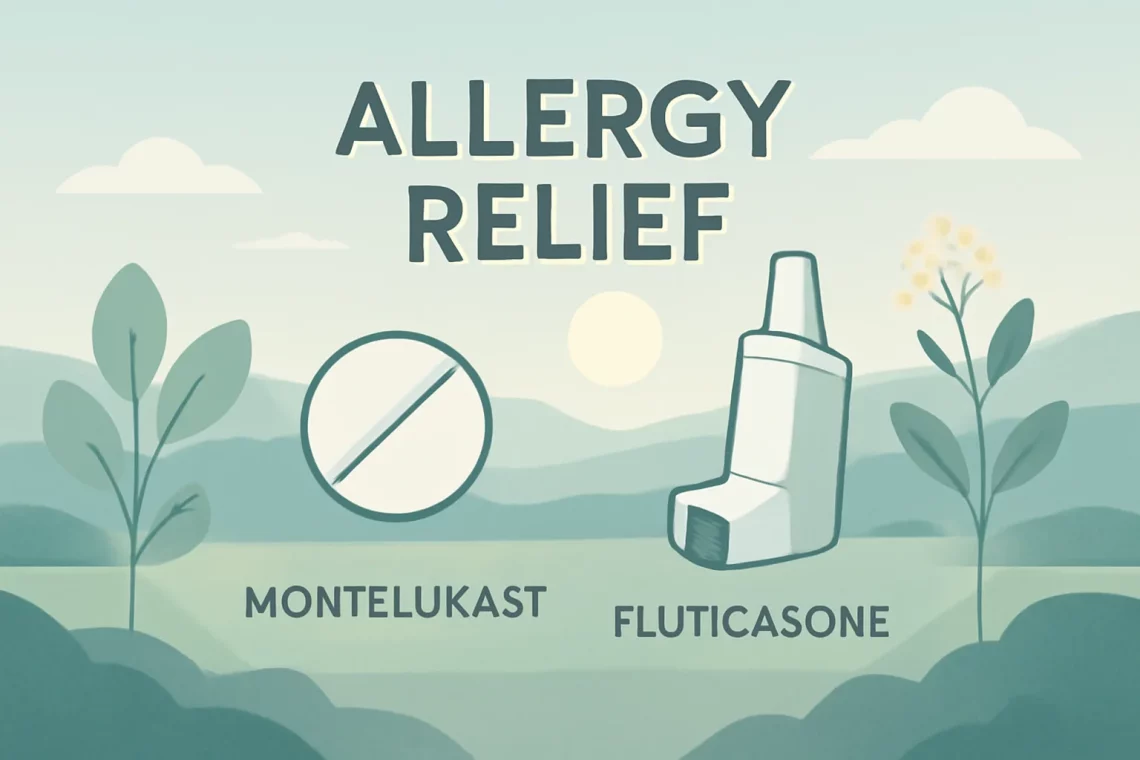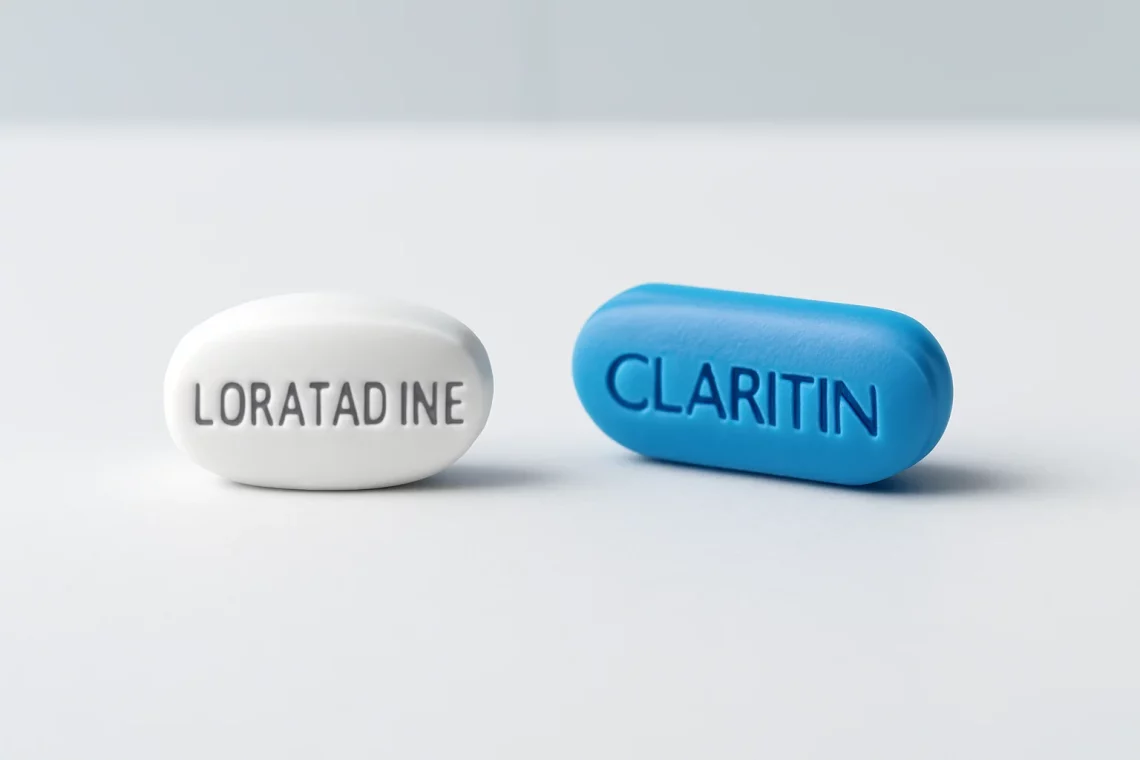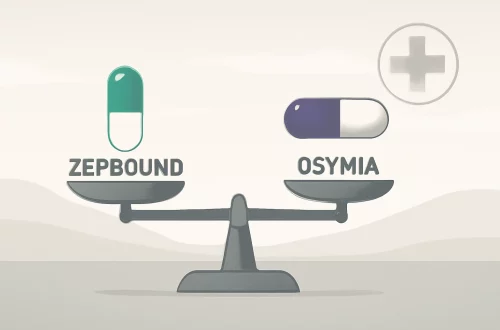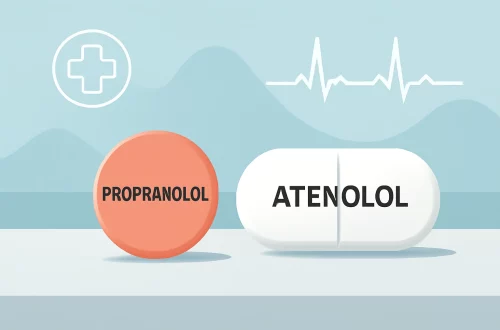-
Prednisone vs Triamcinolone: Key Differences and Uses Explained
Prednisone and triamcinolone are both corticosteroids, widely used in the medical field to treat a variety of health conditions. These medications are synthetic derivatives of natural hormones produced by the adrenal glands, primarily responsible for regulating inflammation and immune responses in the body. While they share a common purpose in alleviating symptoms associated with inflammatory and autoimmune disorders, their specific applications, mechanisms of action, and side effects can differ significantly. The importance of understanding the differences between these two medications lies in their varying effectiveness for particular conditions, as well as their distinct side effect profiles. Patients and healthcare providers alike must navigate these differences to determine the most appropriate…
-
Loratadine vs Antihistamines: Understanding Their Differences and Uses
Allergies are a prevalent issue that many people face, especially during specific seasons or in response to various environmental triggers. They can cause a range of uncomfortable symptoms, such as sneezing, itching, runny nose, and watery eyes. For those suffering from allergic reactions, antihistamines have long been a go-to solution. Among these, loratadine has gained significant attention due to its effectiveness and relatively low side effects compared to first-generation antihistamines. Understanding how loratadine fits into the broader category of antihistamines is crucial for individuals seeking relief from allergy symptoms. As more people turn to over-the-counter medications, it’s essential to discern which options are most suitable for their needs. The distinction…
-
Montelukast vs Fluticasone: Which is Better for Allergies?
In recent years, the prevalence of asthma and allergic conditions has risen significantly, leading to an increased demand for effective treatments. Among the most frequently prescribed medications are Montelukast and Fluticasone. Both drugs are utilized to manage symptoms of asthma and allergic rhinitis, but they work through different mechanisms and have distinct profiles. Understanding the differences between these two medications can empower patients and healthcare providers to make informed decisions about asthma and allergy management. Montelukast is a leukotriene receptor antagonist that helps reduce inflammation in the airways, thereby alleviating symptoms such as wheezing, shortness of breath, and nasal congestion. On the other hand, Fluticasone is a corticosteroid that directly…
-
Loratadine vs Diphenhydramine: Which Antihistamine Is Right for You?
Loratadine and diphenhydramine are two commonly used antihistamines that play a crucial role in managing allergy symptoms. They are both effective in alleviating conditions such as hay fever, allergic rhinitis, and other allergic reactions. While they serve a similar purpose, the way they work and their side effects can vary significantly, making it essential for users to understand the differences between them. Antihistamines function by blocking the action of histamine, a substance in the body that causes allergic symptoms. However, there are two primary categories of antihistamines: first-generation and second-generation. Diphenhydramine falls into the first-generation category, while loratadine is classified as a second-generation antihistamine. This distinction is essential for users,…
-
Loratadine vs Levocetirizine: Which Antihistamine is Right for You?
Allergies can significantly affect daily life, often leading to discomfort and decreased productivity. As the prevalence of allergic conditions continues to rise, effective management through medication has become a priority for many individuals. Among the most commonly prescribed antihistamines, Loratadine and Levocetirizine are frequently considered options for alleviating allergy symptoms. These medications serve as first-line treatments for allergic rhinitis and other allergic reactions, but they differ in several key aspects, including their chemical structure, efficacy, side effects, and dosage recommendations. Understanding these differences is essential for patients and healthcare providers alike, as it can guide them in making informed decisions regarding the most suitable treatment option. As we delve into…
-
Loratadine vs Claritin: Key Differences You Should Know
Loratadine and Claritin are terms often used interchangeably in discussions regarding the management of allergy symptoms. For many, particularly those suffering from seasonal allergies or allergic rhinitis, understanding the nuances between these two names can be critical in making informed decisions about their health. As a second-generation antihistamine, loratadine has gained popularity for its effectiveness in alleviating allergy-related symptoms such as sneezing, runny nose, and itchy eyes. However, Claritin, which is a brand name for loratadine, has also carved out a significant place in the market, leading to some confusion among consumers about their differences. The landscape of allergy medications is vast, with countless options available that promise relief from…
-
Sunflower Butter vs Peanut Butter: Which Is the Healthier Choice?
Sunflower butter and peanut butter are two popular spreads that have gained significant attention in recent years, particularly among health-conscious individuals and those with dietary restrictions. Both options are celebrated for their unique flavors and nutritional profiles, but they cater to different needs and preferences. Sunflower butter, derived from sunflower seeds, has emerged as a favored alternative for those with nut allergies, while peanut butter, made from ground peanuts, remains a staple in many households. The debate surrounding which of the two is the healthier option is multifaceted, encompassing factors such as nutrient density, allergy considerations, and overall health impacts. With the increasing popularity of plant-based diets and the rise…
-
Is Polyester Bad for Skin? Understanding the Effects on Your Body
Polyester is one of the most widely used synthetic fabrics in the world, favored for its durability, wrinkle resistance, and low cost. As a common material in clothing, home textiles, and various other products, it’s essential to understand how polyester interacts with our skin. While it’s a practical choice for many, concerns have arisen regarding its potential effects on skin health. Various factors determine how our skin responds to textiles, including individual sensitivities, the environment, and the specific use of the fabric. Understanding the relationship between polyester and skin health is crucial for consumers who want to make informed choices about their clothing and textile products. This inquiry may lead…
-
Can Dogs Be Allergic to Grass? Understanding Canine Allergies Explained
Understanding the nuances of canine health is essential for every dog owner. One of the more common concerns that pet owners face is allergies, which can manifest in various ways and can have a significant impact on a dog’s well-being. Allergies in dogs are often misunderstood, and one of the lesser-known culprits is grass. While many people think of food or fleas when they consider allergies in dogs, environmental factors, including grass, can also play a role in a dog’s allergic reactions. Dogs, much like humans, can develop sensitivities to different substances in their environment. This includes pollen, dust, and yes, even grass. The symptoms of these allergies can range…
-
Can Allergies Cause Anxiety? Understanding the Connection
Understanding the complex relationship between physical health and mental well-being is crucial in today’s fast-paced world. Among the myriad of health issues that affect individuals, allergies have gained attention not only for their physical symptoms but also for their potential psychological impact. Allergies, triggered by various environmental factors such as pollen, dust mites, or certain foods, can lead to discomfort, fatigue, and in some cases, emotional distress. While allergies are traditionally viewed through the lens of physical health, emerging research has shed light on the intricate connection between allergic reactions and mental health challenges, particularly anxiety. The experience of dealing with chronic allergic reactions can lead to heightened stress levels,…
